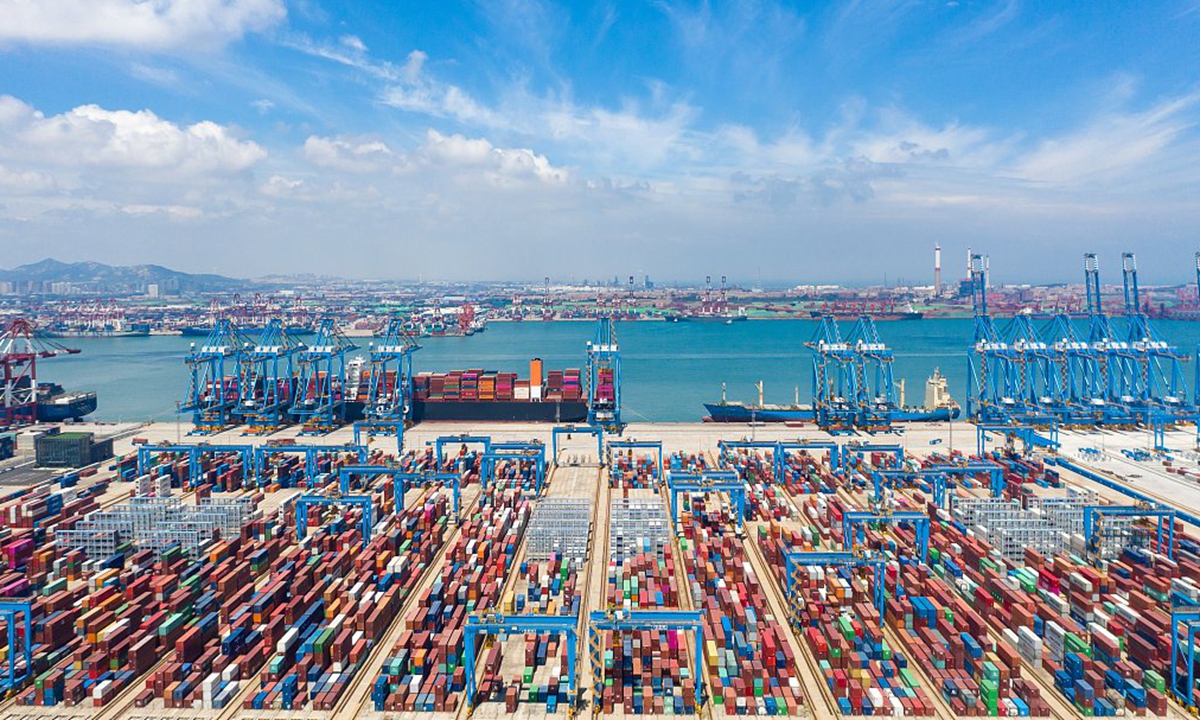
Foreign trade Photo: VCG
The US announced on Thursday that it will extend its tariff exclusions for some Chinese medical products for an additional three months in order to continue to fight the COVID-19 pandemic.
Chinese experts noted that the extension demonstrated that the US' "decoupling" push is a false proposition as trade cooperation between the two countries has long been inseparable, urging Washington to work with Beijing to address common challenges.
According to a statement released by the US Trade Representative (USTR), the exclusions were scheduled to expire on November 30. In light of the continuing efforts to combat COVID-19, they have been extended for an additional 90 days, through February 28, 2023.
"The US move was a last resort for the US amid challenges including the COVID-19 pandemic, surging inflation and public discontent, and it also indicated that China and the US are inextricably linked in trade and commerce," Gao Lingyun, an expert at the Chinese Academy of Social Sciences in Beijing, told the Global Times on Thursday.
The exclusions cover 81 medical-care products, which were initially granted on December 29, 2020. According to the statement of the USTR, the exemptions were extended once in November 2021 and again in June.
The repeated extensions of tariff exemptions show that the unreasonable US trade sanctions on China is untenable, Gao noted.
Items on the list for tariff extensions included pump bottles for hand sanitizer, plastic containers for sanitizing wipes, blood pressure monitors and X-ray tables, according to media.
The statement said the USTR's decision to extend the 81 product exclusions takes into account public opinion, the advice of advisory committees and the White House COVID-19 Response Team.
Gao said that Chinese medical products are cost-effective, and the US has few substitutes. If the country decides to impose tariffs on those products, domestic producers and consumers may meet higher costs.
The USTR may continue to consider further extensions and/or additional modifications as appropriate, the statement said.
The tariffs on more than $350 billion worth of Chinese imports went into effect in July 2018 as part of former US president Donald Trump's efforts to reduce the US trade deficit with China.
However, the US is facing rising inflation, and the Biden administration has come under pressure to lift the tariffs imposed on Chinese goods.
"The recent meeting between the leaders of the US and China revealed some positive signals that the two countries' economic and trade conflicts may ease," Gao said.
Shu Jueting, a spokesperson for China's Ministry of Commerce, said on Thursday that Minister of Commerce Wang Wentao met with USTR Katherine Tai on November 18, noting that both sides should respect each other, engage in constructive cooperation and find concrete paths to solve problems on the basis of mutual trust.
Wang expressed serious concerns about the trade and investment restrictions introduced by the US against China, suggesting both sides should be open to regional economic cooperation initiatives.
"We hope that the US will work with China to promote the early return of US-China economic and trade cooperation to a healthy and stable development track," Shu said.
Global Times




